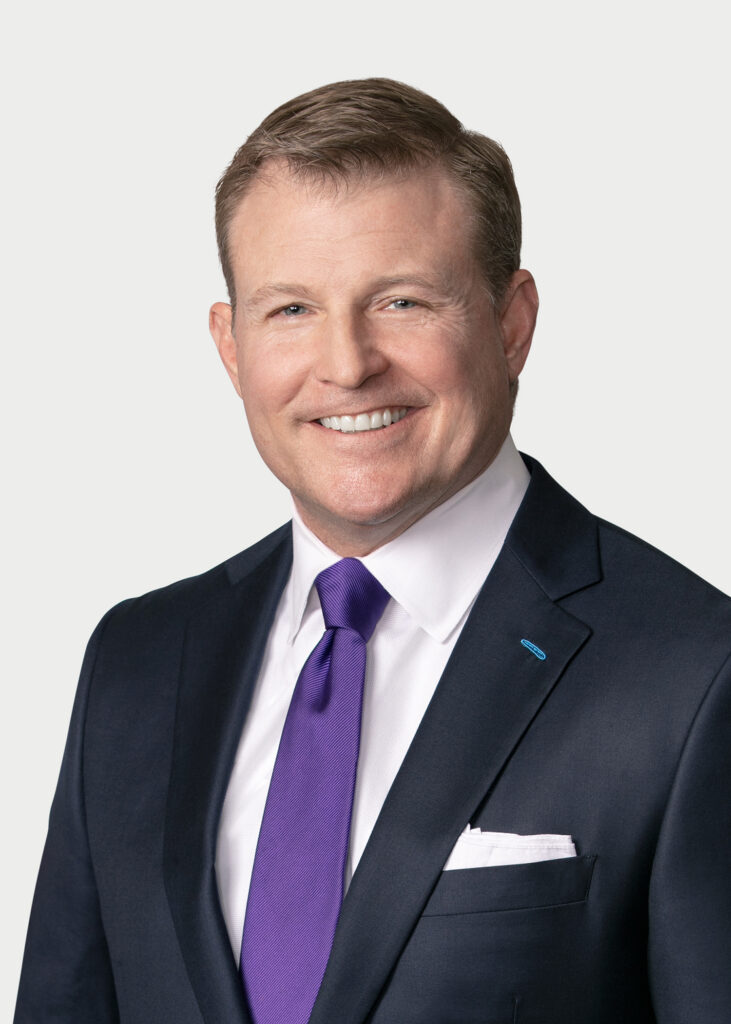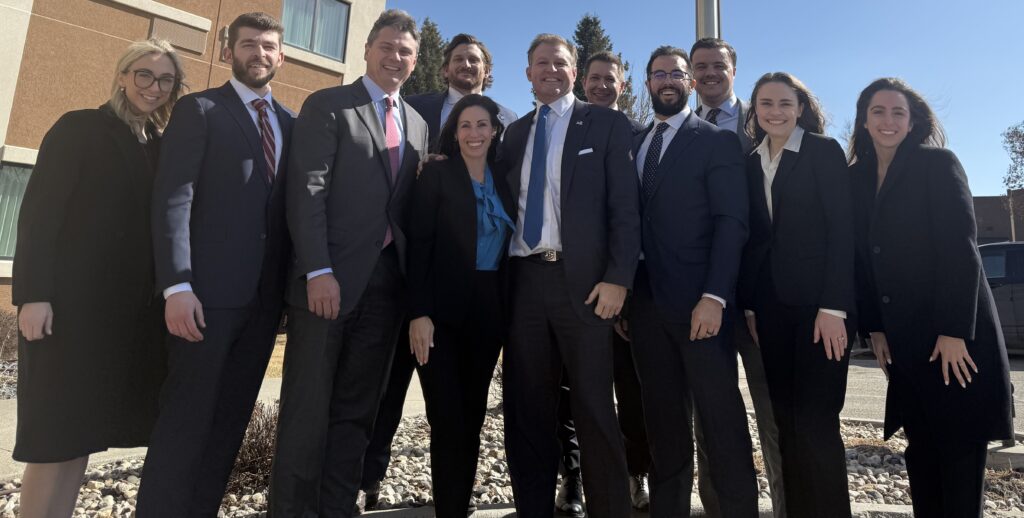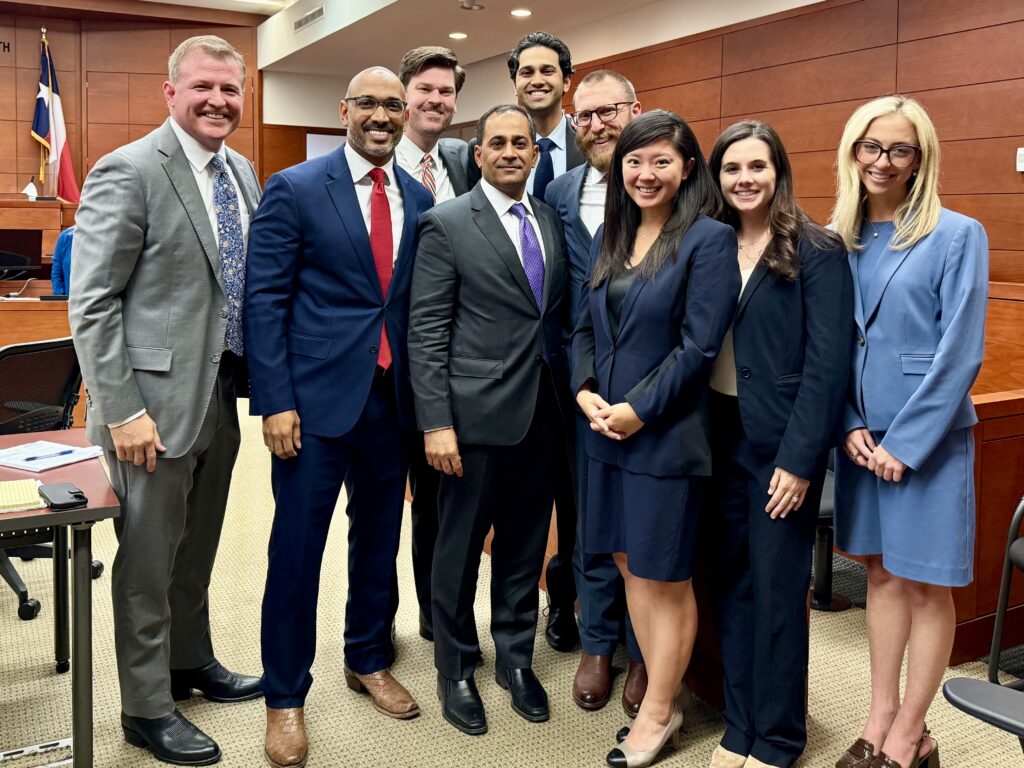Asked & Answered is a new standing feature The Texas Lawbook will bring readers every other week, highlighting the work of leading Texas lawyers and offering insight into their lives outside the courtroom. In this edition, I sit down with Trey Cox, co-chair of Gibson, Dunn & Crutcher’s global litigation practice group and co-partner in charge of its Dallas office.
Gibson, Dunn & Crutcher partner Trey Cox has won some big verdicts recently, from the $660 million awarded in a North Dakota trial where he represented Energy Transfer against Greenpeace to the $46 million award Dallas County jurors gave his client in a lawsuit between two cousins who purchased Cicis Pizza.
With another trial on his calendar in October, Cox told The Texas Lawbook in a recent interview he plans to keep the momentum going.
He said he developed his style of practice as a “baby associate” by watching Lynn Pinker Hurst & Schwegmann founding partner Mike Lynn, Tillotson Johnson & Patton founding partner Jeff Tillotson and Winston & Strawn partner Tom Melsheimer.

“I had a bunch of great teachers and role models, and … my practice, my style, the way I do trials, is a little bit of all of them — and maybe one or two new things that I do,” Cox said. “I learned a tremendous amount from all of those guys.”
Cox grew up in Shreveport, Louisiana, and went to Washington & Lee University for his undergraduate studies. Before he graduated with his bachelor’s, he said he was contemplating either going to law school or coaching football.
“Law school worked out just fine, and I’m still practicing law,” Cox said.
While Cox didn’t coach football, he did coach all three of his daughters in basketball.
“I got the coaching bug that way,” Cox said.
Cox earned his law degree from the University of Virginia in 1995, where he met his wife, Kirkland & Ellis partner Erin Nealy Cox, who formerly served as the U.S. attorney for the Northern District of Texas.
The couple settled down in Dallas after getting engaged because Erin had a job with Judge Barefoot Sanders.
“I followed not a girl, but the girl,” Cox said.
Cox recently sat down with The Texas Lawbook.
The following conversation has been edited for length and clarity.
Texas Lawbook: Gibson Dunn has been on a three-year lateral partner hiring spree. Are there still top litigation partners in Texas that you would like to recruit to the firm?
Trey Cox: I am always, constantly looking to try to grab extraordinarily good and talented people to join the firm. To the extent that you’re trying to grow a law firm domestically, there’s no better place than the state of Texas to do that. The main thing that I’m trying to do is make sure that I am building here in Texas, and that’s Dallas and Houston, sort of a big enough, talented enough net to make sure that we get our fair share of the opportunities here in Texas.
Lawbook: What are one or two practice groups that you really want to grow in Texas?
Cox: I think that we’re always trying to grow the litigation side of things. I think that Texas is much more of a sort of litigation prevalent state, has a lot more litigation activity than it does transactional activity. We’re also looking to increase our practice with respect to white collar, as well as the state [attorney general] investigations. We have [former Fifth Circuit judge] Gregg Costa, and we have [former acting U.S. Attorney for the Northern District of Texas] Prerak [Shah] down in Houston, and they’re working on building that practice out with several of our colleagues across the country.

Lawbook: Many larger corporate law firms have backed away from doing pro bono immigration and asylum work, but not Gibson Dunn. Why did the firm make such a decision and have most clients been supportive?
Cox: Gibson Dunn’s single largest client is our pro bono effort, and that is something that comes from the very top of the organization, from Barbara Becker, our managing partner and our leader, that is something that is fundamental to the practice of law and to the profession of law, and it’s very important to her, it’s very important to the members of our firm. We have remained committed to doing all the pro bono work, including immigration work, that we have done.
Lawbook: Who is the better lawyer — you or Erin? And would you ever handle a case together, such as a pro bono matter?
Cox: Yes, we’d love to do a case with her, if we could find the right thing and the right opportunity. … But here’s what I’ll say — and I tell this story all the time — I live in a household with my wife, and we have three daughters. I live in a household with four women, and I lose every one of the arguments in my own household. She’s a much better advocate than I am. But they make it fun, and they make it bearable for me to lose all those arguments.

Lawbook: What was a memorable experience or case in your career?
Cox: The most memorable one is the Greenpeace case, the one I tried up in North Dakota. That’s the big one.
Lawbook: Why does the Greenpeace case stand out to you as memorable?
Cox: We won $660 million. It was for a hometown client, Energy Transfer. The people of North Dakota were fabulous. It was just a really good place.
Lawbook: What are your two or three biggest cases coming up for trial in the next few months?
Cox: We’ve got one in October down in Bexar County. We represent a company called Argo against a company called DUAL, and it is a corporate raiding case, meaning DUAL came in and in a synchronized hire, hired 27 of our employees in an entire division. And we’re suing the individuals who led the lift out, as well as [asking for] the damages that [the company] caused. It’s going to be a pretty significant case.
